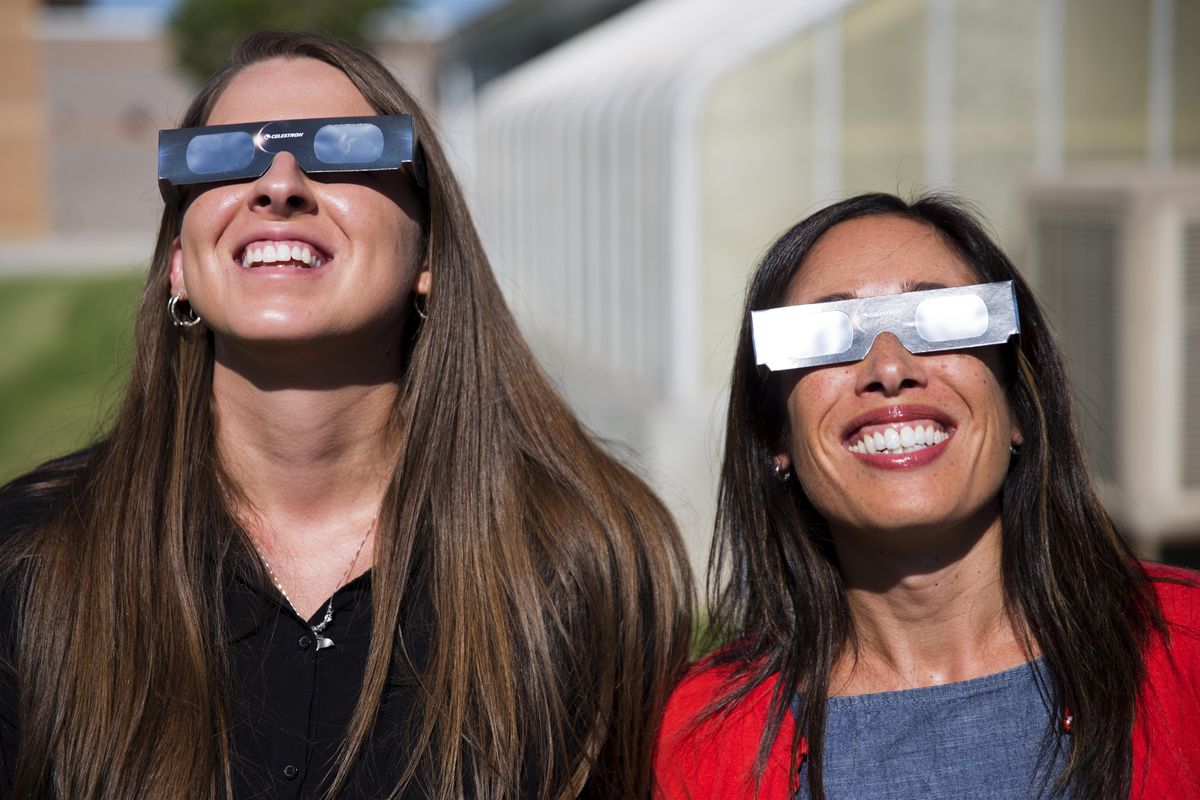Idaho schools debate canceling classes for August solar eclipse

TWIN FALLS, Idaho – A total solar eclipse coming up in August is creating a scheduling headache for schools.
Is it worth canceling classes? Or should students stay in school and use the eclipse as a learning experience?
And for some, eclipse day Aug. 21 marks the first day of school.
Some schools are holding classes as usual and buying solar glasses for students. Others are canceling school and teacher work days altogether.
“I’m hoping (students) see it’s an important thing – something important that happens on their planet,” Twin Falls High School science teacher Ashley Moretti said. “A lot of them have never seen anything like this.”
So what’s the big deal, anyway? The next total eclipse – when the moon passes over the face of the sun – won’t be visible in Idaho again until 2169.
The Twin Falls School District plans to continue with classes as usual Aug. 21 – the third day of school.
The district bought 11,000 pairs of solar glasses, enough for every student and staff member to view the eclipse from Twin Falls.
It cost the district 42 cents to buy each pair of glasses. They’re paid for by elementary and secondary curriculum budgets.
Other Magic Valley school districts – including Wendell and Bliss – are also using the day of the eclipse as an educational opportunity and are buying solar glasses for every student.
But across Idaho – particularly, in eastern Idaho – some students will have the day off. In Buhl, the school board voted Monday to cancel classes.
“Canceling school Aug. 21 will allow an opportunity for students and staff to travel to an area where they can view the eclipse,” the district said in a statement. “It is the first time in 99 years that a total solar eclipse has occurred this close to the Buhl area.”
The district bought solar glasses to distribute to students Aug. 18, the Friday before the eclipse.
In Jerome, the school district created its calendar with the solar eclipse in mind.
“Normally, that would have been our first day of school, but we made our first day on the 22nd so students and parents can travel if they choose or observe from here,” Superintendent Dale Layne wrote in an email to the Times-News.
The College of Southern Idaho plans to hold classes Aug. 21 – the first day of fall semester – and the college campus will be fully operational.
Some academic departments, though, have an out-of-town field trip planned to view the eclipse.
At Twin Falls High, science teachers Moretti and Candace Wright are spending time this summer creating three versions of a Google Slides presentation: for elementary, middle and high schools.
“We’re trying to make it as user-friendly as possible,” Wright said.
Teachers throughout the Twin Falls School District will use the presentation the Friday before the eclipse to help inform students.
The presentation covers topics such basic information about what an eclipse is and how to stay safe while looking at the sun.
The eclipse has been on Moretti’s radar for at least four years. She and her colleagues attended a National Science Teachers Association conference last school year and the eclipse was a big topic.
“We came back and it was like, `We need to do something,“’ Moretti said, especially since Twin Falls is so close to the path of totality.
Because Moretti teaches an Earth and space class, and Wright teaches astrophysics, they took the lead on the project.
Learning about and seeing the solar eclipse may spark an interest in science for some students, Moretti said. And she hopes they gain a sense of appreciation and awe for the universe.
Many of Twin Falls High’s science teachers won’t be at school Aug. 21.
Both Moretti and Wright are using personal days to travel to the path of totality – both of them are going to the Wood River Valley.
Moretti plans to collect data during the eclipse to share with students during the fourth quarter of the school year. That’s when they start learning about astronomy.
But on eclipse day, students will have a rare opportunity to get a first-hand science lesson in their own backyard. No textbook needed.